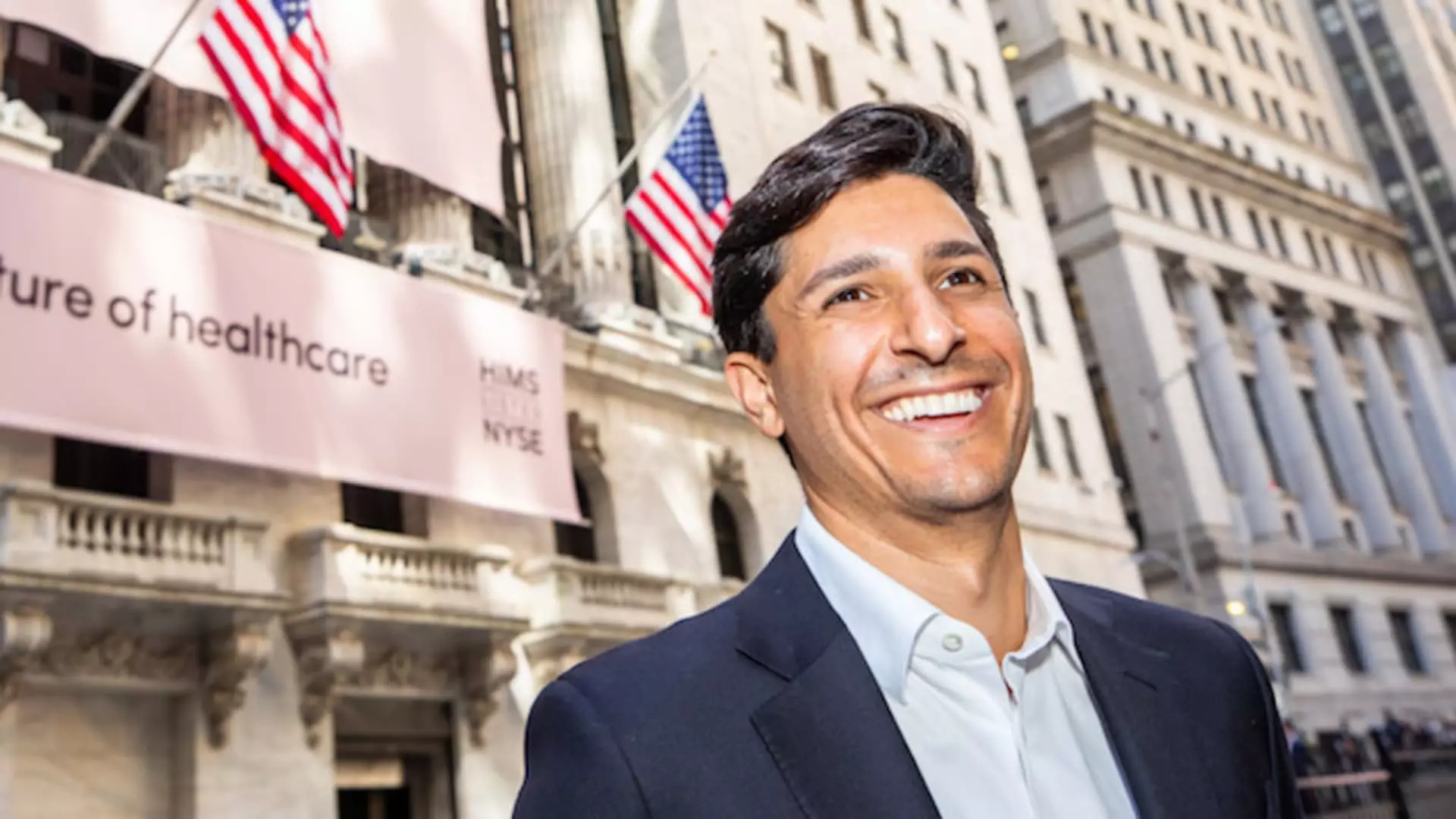In modern politics, the intertwining of corporate interests and political agendas is often underscored by financial contributions to inauguration funds and other political initiatives. A striking example of this trend is Hims & Hers Health’s decision to donate $1 million to President-elect Donald Trump’s inauguration fund. This move, confirmed recently by CNBC, illustrates a broader strategy where tech companies and startups attempt to secure favor from governmental leadership. Notably, big names in the tech industry, including OpenAI’s Sam Altman and Meta, followed suit with their own substantial donations last year, indicating a concerted effort among tech firms to negotiate their positions within the incoming administration’s framework.
Hims & Hers, known for its direct-to-consumer healthcare offerings, has gained remarkable traction in the digital health landscape, particularly with its latest weight-loss program that doubled down on compounded medications such as semaglutide. This active ingredient, present in highly sought-after treatments like Ozempic and Wegovy, is typically priced out of reach for many patients, which makes Hims & Hers’ cheaper compound alternatives appealing. The financial contributions from the company can be viewed not merely as political donations but as investments in creating a dialogue around healthcare solutions that resonate with both corporate objectives and the health needs of the American populace.
However, the decision to contribute to a political fund also presents inherent risks. A commitment of such magnitude can lead to public scrutiny and backlash, particularly when political figures express contradictory views regarding specific health treatments. For instance, Robert F. Kennedy Jr., Trump’s designated leader of the Department of Health and Human Services, has taken a critical stance on GLP-1 medications, suggesting that lifestyle changes should serve as the primary response to obesity, albeit with a caveat that these medications hold some merit.
The regulatory landscape surrounding telehealth and medications like GLP-1s is under transformation, significantly influenced by the incoming administration’s personnel choices. Dr. Marty Makary, who has been selected to head the Food and Drug Administration (FDA), previously held an executive position within a telehealth firm. While his official stance on these medications remains to be adequately articulated, the combination of corporate influence and regulatory oversight under Trump’s administration raises questions about potential conflicts of interest and the prioritization of patient needs over corporate gains.
Elon Musk’s support for the accessibility of GLP-1 medications highlights a further dimension of this complex relationship between political alignment, corporate investment, and healthcare innovation. Musk’s declaration that making these medications affordable would enhance public health and wellbeing echoes a pressing public concern: access to effective treatments should not hinge on the financial wherewithal of individuals. Musk’s perspective introduces a forward-thinking narrative in contrast to the more conservative views articulated by some members within Trump’s inner circle.
The intersection of corporate philanthropy and healthcare has a profound impact not only on the business models of companies like Hims & Hers but also on the very fabric of healthcare accessibility in the United States. As organizations lobby for governmental support by backing political initiatives, a question emerges: Are these contributions ultimately aimed at fostering genuine public health improvements, or have they transformed into mere transactional alliances for market positioning?
While Hims & Hers touts a commitment to work alongside the Trump administration and promote their viewpoint on crucial health medications, the long-term implications of these partnerships demand scrutiny. If the main objective remains entrenched in corporate profitability rather than authentically addressing healthcare deficiencies, the ultimate beneficiaries may be far removed from those who genuinely need improved access to effective treatments.
The dynamic dance between healthcare companies, political contributions, and the wider implications for American public health demands a nuanced understanding. As stakeholders like Hims & Hers navigate their roles and responsibilities within this interconnected ecosystem, their choices will shape not only their corporate futures but also the accessibility and affordability of essential healthcare solutions across the nation. This dialogue remains critical, especially as society grapples with the complexities of health, equity, and corporate ethics in an evolving political landscape.


Leave a Reply